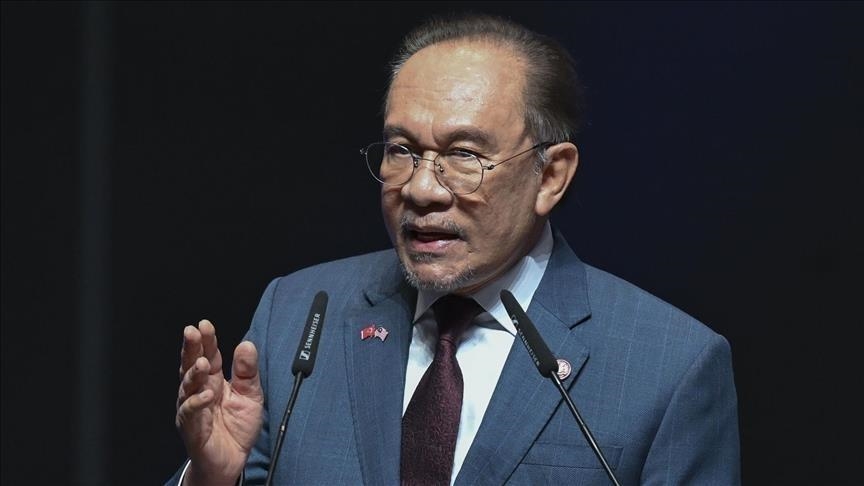Thailand, Cambodia 'agreed' to ceasefire but need time to pull back troops: Malaysian Premier Anwar
Cambodian Premier Hun Manet confirms ceasefire reached but blames Thailand for reversal

- Thai Foreign Ministry says it ‘fully agrees in principle’ with Anwar Ibrahim’s ceasefire proposal but it must be based on appropriate on-the-ground situation
ISTANBUL
Malaysian Prime Minister Anwar Ibrahim said on Friday that Thailand and Cambodia had “agreed” to a ceasefire but needed time to pull back their troops from the border, state-run news agency Bernama reported, as cross-border fighting continued for a second day.
Bangkok said it “fully agrees in principle” with Anwar’s proposal, while Phnom Penh said it accepted the ceasefire but blamed Thailand for reversing it.
"The Thai side had agreed to his proposal for a ceasefire," Cambodian Prime Minister Hun Manet said on Facebook. But, he added: "It is regrettable that just over an hour later, the Thai side informed us that they had reversed their position from agreeing to the ceasefire."
Anwar spoke to his Thai and Cambodian counterparts on Thursday night.
Bangkok has no objections to a ceasefire, according to Thai Prime Minister Phumtham Wechayachai, but they want more clarity on the terms, Free Malaysia Today reported.
Phumtham said Thailand agreed in principle to Anwar's offer to mediate in the conflict and asked him for a concrete commitment and guarantee that similar incidents would not occur again.
The Thai Foreign Ministry, earlier, had also expressed "full agreement" in principle with Anwar's ceasefire offer, as well as it being based on “appropriate on-the-ground conditions,” and said Bangkok would consider it.
Phumtham has also blamed Cambodia for initiating the latest armed conflict by using "military force first.”
Bangkok also imposed martial law in two border provinces, Chanthaburi and Trat, as cross-border fighting continued for the second day.
Separately, the Thai army said in a statement that it will consider using cluster munitions "as necessary against military targets to enhance target destruction capabilities."
"Regarding the Convention on Cluster Munitions (CCM), which prohibits parties from using, producing, or stockpiling this type of weapon, it is not binding on Thailand, as Thailand is not a party to that convention, similar to many other countries, such as the United States, Russia, and others," said the army spokesman Major General Winthai Suvaree.
According to Thailand’s Health Ministry, the death toll has climbed to 15, including one soldier, while Cambodia has confirmed the death of a monk and said five others were injured in airstrikes by the Thai Air Force on Thursday.
Cambodia and Thailand have downgraded diplomatic ties to their lowest level in decades after tensions between the two countries began rising on May 28, when troops exchanged fire near the border, resulting in the death of a Cambodian soldier.
The two Southeast Asian neighbors have a disputed border lying across Cambodia’s Preah Vihear province and the northeastern province of Ubon Ratchathani in Thailand.
Anadolu Agency website contains only a portion of the news stories offered to subscribers in the AA News Broadcasting System (HAS), and in summarized form. Please contact us for subscription options.







